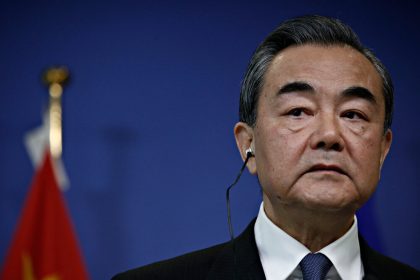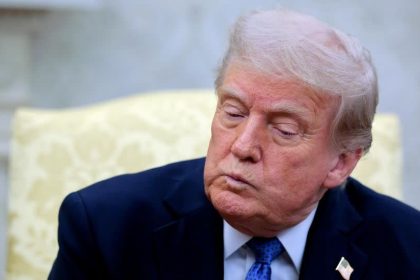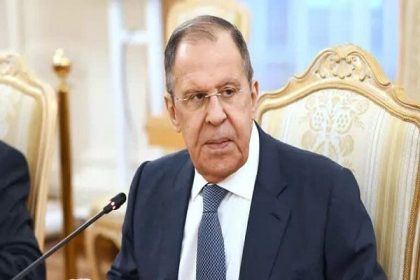Georgia, a new example of America’s failure in Eurasia
The inauguration of a pro-Russian president in Georgia and the failure of Western investments for this country’s membership in the European Union are the latest external manifestations of the failure of Washington’s policies in Eurasia.
According to RCO News Agency, in an article referring to the establishment of a pro-Kremlin government in Georgia, the American publication examined the reasons for turning the South Caucasus away from the United States and Europe.
According to “Foreign Policy” publication, on Sunday, the presidential term of “Salome Zurabishvili” ended in Georgia, a figure who demanded the country’s membership in the European Union and envisioned a European future for Georgia. He was replaced by Mikhail Kavlashvili, the former football star of Georgia who has been elected as the country’s new president and prefers proximity to Russia to membership in the European Union.
The election of Kavlashvili as the president of Georgia took place in a tense atmosphere, to the point where Zurabishvili questioned the integrity of the election and called for new elections.
According to Foreign Policy, although post-election protests are not unusual in former Soviet member states as well as globally, the crisis in Georgia highlights the depth of the failure of the policies of the US and its allies in “spreading democracy” in Eurasia.
Georgia was known as a leading country in support of American values in the South Caucasus region, but now there has been a big turn. Referring to this change, Foreign Policy raises the question, where did the West go wrong?
According to the American media, the political and financial investments of the United States in Georgia since the 1990s and the leadership cooperation between the United States and this country have been suspended today. Political elites in Georgia, especially “Mikhail Saakashvili”, who was the former president of this country and one of the leaders of the “Rose Revolution”, sought the support of the West and tried to introduce Georgia as a European nation.
Now, however, this country is heavily affected by the geopolitical gaps between Russia and the West, and if the downward trend of Western “democracy” continues there, other regions of the South Caucasus will also be affected, especially considering the “creeping dictatorship” in the Republic of Azerbaijan. and the existing challenges to stabilize “democracy” in Armenia.
Protests in Georgia over joining the European Union
American policy in Eurasia
Recalling that Washington has not had a coherent approach to Eurasia since the collapse of the Soviet Union, Foreign Policy writes that the United States cannot now resist the authoritarian coordination of China and Russia with its disjointed regional alliances and bilateral relations with these countries. While the US has neglected to form a coherent approach and is content with expanding relations with a few important regional actors, China and Russia have developed comprehensive plans for Eurasia.
The Kremlin sees Russia not simply as part of Europe or Asia, but as the center of gravity of a Eurasian civilization, and this – referred to as “Eurasianism” – has become Moscow’s guiding political doctrine. According to the American media, Russia initially sought to revive aspects of the former multinational Soviet Union, but now Eurasianism has turned into civilizational, anti-Western and anti-liberal principles for Moscow, which is reflected in the establishment of Russia-oriented regional organizations such as the “Eurasian Economic Union” and “Organization “Collective Security Agreement” appeared and finally led to the war in Ukraine.
On the other hand, China is developing its influence in Eurasia mainly through its infrastructural strength, namely the Belt and Road Initiative, gas transmission pipelines and electricity transmission grid. Taking advantage of this infrastructural power, China is changing the existing regional arrangements around Russia, with Central Asia playing a key frontline on this front.
According to Foreign Policy, for the first time, it was during the “Joe Biden” administration that the United States thought of developing more coherent relations with Eurasia. With less than a month left in his presidency, he has sought to bridge the gap with China’s massive infrastructure improvements by investing in infrastructure, reviving partnerships and building deeper ties among his allies on the continent, something that Jake Sullivan, National Security Adviser, and Anthony Blinken, US Secretary of State, are also evident.
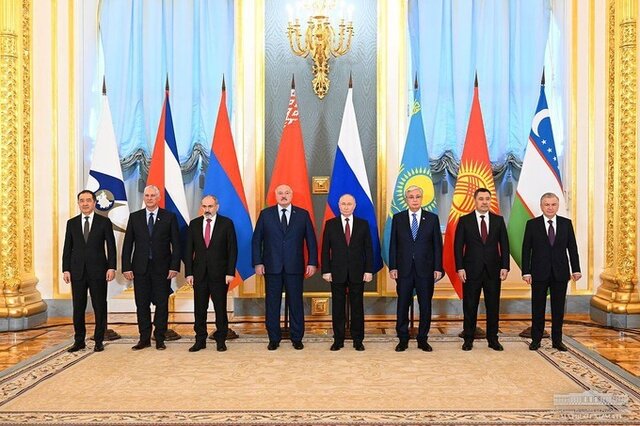
Eurasian Economic Union meeting – 2024
America’s outdated approach
In 2023, Sullivan emphasized the need to strengthen the connection between Europe and the Indo-Pacific to strengthen US alliances and share the burden of this alliance equally. In response to China’s Belt and Road Initiative, the United States has in recent years proposed initiatives such as the ACOS Pact, the QUAD Group, and the Indo-Middle East-Europe Economic Corridor.
However, this American approach is terribly outdated and has not changed much since the end of World War II. In its strategic thinking, America still divides Eurasia into unrelated sub-regions, with each sub-region relying on a “pivot country” to exert US power and protect Washington’s interests, including Japan, Turkey, India, and South Korea.
But according to the American media, this has weakened Washington’s bargaining power compared to smaller countries like Georgia, and middle powers like Türkiye. In Georgia, for example, Washington eventually increased the bargaining power of an increasingly authoritarian state and was able to take over state institutions by centralizing power.
After the end of the Cold War and the collapse of the Soviet Union, with the increase in the number of Eurasian sub-regions such as Central Asia, the Baltic States, the South Caucasus and the Balkans, this strategy has become a weakness. These sub-regions are border spaces between major geopolitical powers, and political elites in key countries in each sub-region have learned how to play off Washington, Moscow and Beijing to their advantage.
On the other hand, this policy of the United States not only did not help promote democracy, but also led to the perpetuation of autocratic regimes. The disjointed geopolitics of Eurasia is a serious threat to the American rule-based order, which has been nurtured under US hegemony.
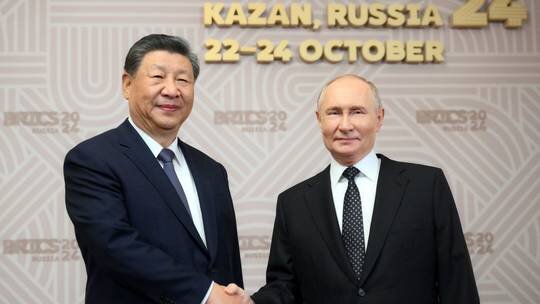
Putin and Xi met on the sidelines of the BRICS summit in Kazan
The growing popularity of China and Russia
From the end of the Cold War to the present day, America has inadvertently created or exacerbated numerous geopolitical divisions by focusing on pivotal and key countries across Eurasia. These gaps weaken regional markets and prevent emerging democracies from reaping economic benefits. The instability of the government in these areas has become an acute situation and has caused these areas to get stuck in armed conflicts. According to Foreign Policy, Washington has caused an economic failure with its single alliance with Georgia in the Caucasus region.
For example, Washington’s goal in communicating with Georgia was to expand its influence in the Caucasus, but Tbilisi was able to gain more bargaining power than Washington by acting as a mediator between regional markets.
According to this report, Washington is on the defensive in the South Caucasus, and the Republic of Azerbaijan has been able to protect Russia by removing the West from the equation. President Ilham Aliyev’s repeated threats to create the Zangzor Corridor in southern Armenia have no purpose other than creating an intercontinental corridor that is immune to sanctions.
If successful, this plan will turn southern Armenia into a gray area under the military supervision of Russia and the Republic of Azerbaijan. Then, without Washington doing anything, this region can connect Russia and Iran, and China will find a new route to the deep-water port of Anaklia on the Black Sea coast of Georgia.
According to Foreign Policy, not only Washington’s diplomatic plans to open trade and transit routes in the region have gone nowhere, but Baku has also weakened the EU’s civilian monitors on Armenia’s borders. The presidents of Russia and Azerbaijan are also developing regional cooperation frameworks specifically designed to sideline Western powers.
The American publication warns that if “Donald Trump” does not take serious measures in his new administration to deal with the declining American influence in this region, America will soon see itself excluded from the power relations in the South Caucasus.
end of message
News>RCO NEWS
RCO














